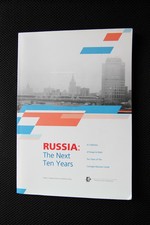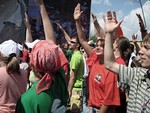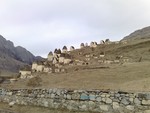Reading about James Anderson and the Chinese Maritime Customs
James Anderson was an officer in the Chinese Maritime Customs through the 1920s and 1930s, and part of the large contingent of international officers staffing this service. He was also the father of Benedict Anderson (of “Imagined communities” fame) and Perry Anderson (historian, for many years editor of the “New Left Review”, and author among other things of interesting books on Gramsci).
Perry wrote two essays (about 15.000 words in total) on his belated encounter with his father, of whom he knew very little, through written records.
Lessons (?) on democracy from ancient Athens
I happened to read recently this review of a book on democracy in ancient Athens and the class of civil servants that used to run it. As I read it, I felt an urge to draw some sort of lesson… without being able to find them.
Anyway, here are the two parts of that article that drew my attention.
1. Cleisthenes is the ancient Athenian leader who “extended the vote to the landless masses”, which is basically the main reason why Athenian democracy is celebrated to this day.
How I got to study some of things I study, and personal reasons that partly explain why I studied them the way I did
My PhD thesis – What is the effect of non-recognition? The external relations of de facto states in the post-Soviet space – is freely available for download on Dublin City University’s institutional website.
This is a brief excerpt from the thesis. For more details about my research, see also the post “ Non-recognition is the symptom, not the cause".
The object of research, as well as the methodological approach used to study it, are often determined by personal experience.
Journals focused on post-Soviet, post-Communist and Eastern European affairs
It requires a big effort to stay up-to-date with academic publications in one’s sphere of interest. I put together this post to make it easier to have at least a quick overview of what has been published recently in English-language peer-reviewed journals for those with an interest in post-Soviet, post-Communist and Eastern European affairs.
First, there’s a list of the journals I think are most relevant for scholars focusing on this region, in no particular order (if you think I am missing something important, please let me know).
Russia 2014 as imagined in 2004
In 2004, the Carnegie Moscow Center published a book titled “Russia: the next ten years” (Kuchins and Trenin, 2004). In the introduction, Kuchins makes clear that the aim of the publication is not “to predict” what would happen in the following ten years but rather “to elucidate the context for critical choices for Russian policymakers and the Russian people” (p. 10). However, many of the contributors tried to picture the Russia of 2014, often presenting both a more optimistic and a more pessimistic scenario.
“Seliger’s many faces”, my feature from the International Youth Forum Seliger 2010
My feature about the International Youth Forum Seliger 2010 is now online on balcanicaucaso.org (available in Italian here).
You can find some pictures there or on my Flickr page.
I already shared some considerations on my way back from the forum in a previous post…
And here’s another recent article about youth policies in Russia as a whole and in the Northern Caucasus in particular, that makes reference to Seliger.
City of the dead, North Ossetia
Built in the XIV-XVIII century… beautiful, but rather difficult to reach… there are still bones and whole skeletons inside those building.


